
Subgroup data from the phase 3 DESTINY-Breast05 trial further characterize the clinical benefit of T-DXd over T-DM1 in this breast cancer population.

Your AI-Trained Oncology Knowledge Connection!


Subgroup data from the phase 3 DESTINY-Breast05 trial further characterize the clinical benefit of T-DXd over T-DM1 in this breast cancer population.

The tafasitamab-based regimen was previously approved by the FDA in June 2025 for patients with relapsed/refractory follicular lymphoma.
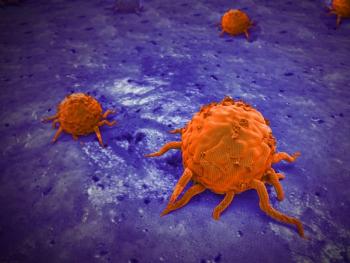
The γ-secretase inhibitor varegacestat conferred an 84% reduction in the risk of progression or death vs placebo among those with desmoid tumors.

Patients 70 years and older with newly diagnosed multiple myeloma experienced higher response rates and prolonged survival with Isa-Rd vs Rd alone.

Based on phase 1 data, GC012F/AZD0120 may broaden therapeutic options for patients with newly diagnosed multiple myeloma.

OncoPrism-NSCLC was found to be a predictive biomarker of immune checkpoint inhibitor benefit vs a general prognostic tool in patients with NSCLC.

A total of 18% of patients with non-ACC metastatic salivary gland carcinoma treated with elraglusib and cisplatin achieved a response in a phase 2 study.

Sessions from SABCS 2025 detailed potential advances across different immunotherapy, radiation, and surgical modalities in breast cancer care.
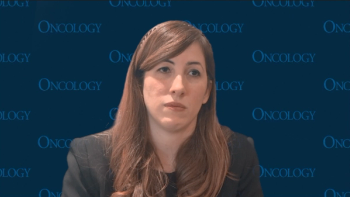
Findings from David Rimm, MD, PhD, suggest that there may be an inverse relationship between HER2 and TROP2 expression among patients with breast cancer.
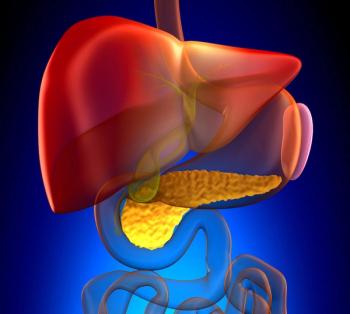
BGB-B2033 is under evaluation for patients with hepatocellular carcinoma who progressed on or after systemic therapy in a first-in-human phase 1 trial.

More than 80% of patients in cohort B of the QUILT-3.032 study avoided cystectomy at 36 months after treatment with nogapendekin alfa plus BCG.

Data from the phase 3 PALOMA-3 study support the approval of subcutaneous amivantamab in this NSCLC population.

Tissue samples collected from patients with breast cancer during treatment may help explore therapy selection and predict toxicities.

Data from the ELEVATE trial may support elacestrant as an endocrine backbone in ER-positive, HER2-negative breast cancer.

Findings from the phase 3 TRITON3 trial evaluating rucaparib in adult patients with metastatic BRCA-mutated CRPC supported the regulatory decision.

A label for imlunestrant/abemaciclib in ER+/HER2– advanced breast cancer with ESR1 mutations will be sought.
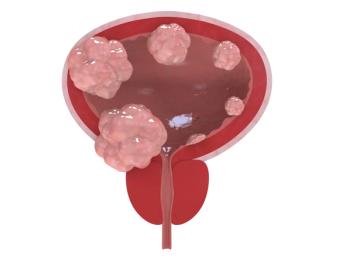
A clinically meaningful and statistically significant pathologic complete response rate advantage was seen with the enfortumab vedotin combination.
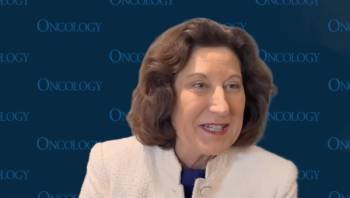
Clinicians can reduce doses and mitigate toxicities in an easier fashion when administering elacestrant-based treatment for those with advanced breast cancer.

Fuzuloparib monotherapy and as a combination with apatinib improved PFS as maintenance therapy in patients with ovarian cancer harboring BRCA1/2 mutations.

The 1-year EFS with CART19 was 90% among patients with B-ALL who had 1 or more CNS relapses.

The addition of pelareorep to standard-of-care therapy in patients with KRAS-mutated microsatellite-stable CRC exhibited an ORR of 33%.

A panel of experts gathered to discuss results from the MATTERHORN trial assessing durvalumab plus FLOT in gastric/GEJ cancer.

Among the 12 patients with suspected brain metastases treated with RAD 101, the images showed metabolic activity in brain metastases compared with MRI findings.

Sunil Dutta, MD, discusses how whole-breast radiation or systemic therapy is responsible for controlling low-volume disease.

Atezolizumab plus neoadjuvant therapy was found to increase chemotherapy-induced ovarian failure among patients with TNBC.
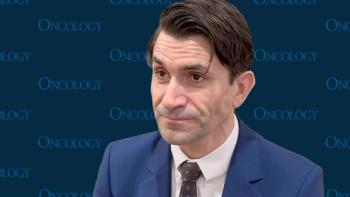
The mechanism of CTO1681 may allow it to reduce the production of a broad range of proinflammatory cytokines in DLBCL.

Data from SERENA-6 showed delayed disease progression and deterioration in QOL among patients who switched to camizestrant plus CDK4/6 inhibition.

The decision is based on results from the phase 3 MajesTEC-3 trial, which showed a PFS benefit with the teclistamab combination in patients with pretreated multiple myeloma.

Results from the phase 3 DESTINY-Breast09 trial led to the approval of T-DXd plus pertuzumab in unresectable/metastatic HER2+ breast cancer.

The BOOG 13-08 trial shows omitting sentinel lymph node biopsy is noninferior to performing it in select older patients with early-stage, HR+ breast cancer.